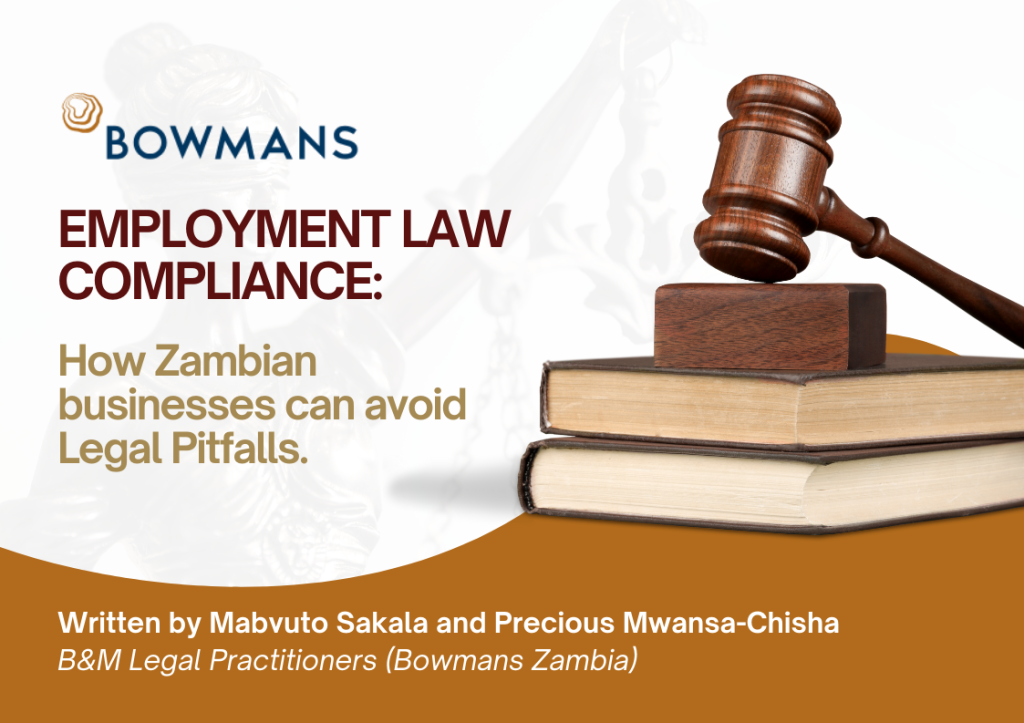
Introduction
Whether the business is a greenfield or a large-scale corporate, navigating a dynamic employment law arena can be daunting. Understanding and ensuring employment law compliance is critical for businesses of all sizes and has the potential of not only preventing legal pitfalls but significantly impacting their overall success and sustainability. Employment law compliance is crucial for businesses for the following reasons:
Legal Security and Risk Mitigation
Compliance with employment law and regulations minimises the risk of costly litigation and regulatory fines. This legal security creates a stable operational environment where businesses can focus on growth and innovation without the constant threat of legal repercussions.
Enhanced Reputation and Trust
Businesses that adhere to fair labour practices, for instance, build a strong reputation of integrity and ethical standards. The commitment to compliance not only attracts positive attention from customers and partners but also enhances trust among employees.
Employee Satisfaction and Retention
Compliance with employment laws ensures that employees’ rights are respected and their working conditions are safe and equitable. This leads to higher levels of employee satisfaction and morale, thereby reducing turnover rates and associated recruitment costs.
Operational Efficiency
By adhering to clear standards for contracts, health and safety, and leave entitlements, businesses can streamline their operations. Compliance helps to standardise practices, reducing administrative burdens and increasing operational efficiency.
Attraction of Investment
For businesses looking to attract international investors, compliance with local employment laws is a critical factor. Global investors seek stable and well-regulated environments where their investments are protected. By aligning with Zambia’s employment standards, businesses demonstrate their commitment to a fair and transparent operational framework, making them more appealing to potential investors.
Alignment with Global Standards and Best Practices
Compliance with international employment law standards not only ensures adherence to local laws but also aligns businesses with global best practices. This alignment is essential for companies looking to operate on a global scale, as it facilitates smoother entry into international markets and partnerships.
Common Legal Pitfalls for Businesses
- Unfair dismissal and wrongful termination;
- Unclear or vague contracts and terms;
- Inadequate compliance with legal requirements under the employment laws and regulations;
- Unfair or imbalanced terms;
- Health and safety regulations; and
- Discrimination and harassment claims.
How Businesses can avoid Legal Pitfalls
- Understand employment law regulatory framework
The employment law framework in Zambia includes the Employment Code Act No. 3 of 2019 (“ECA”), the Industrial and Labour Relations Act, common law and other subsidiary legislation. It is essential for businesses to understand their obligations and regularly monitor changes in the law to ensure compliance. Businesses can join industry-specific associations, subscribe to news flashes or bulletins, or seek legal advisory services to keep up with the employment trends.
- Develop clear and comprehensive employment contracts
Businesses can avoid legal pitfalls by ensuring that the employment contracts are well drafted and are unambiguous. It is crucial to have all contracts reviewed by legal professionals to ensure compliance with local employment laws and regulations.
- Implementing robust internal policies and procedures
The ECA makes it an obligation for employers to ensure that they have employment policies, procedures and codes, including an HIV and AIDS policy, a health and wellness policy, a harassment policy, a performance management policy, a grievance procedure, and a code of conduct.
These policies address critical areas and can help prevent legal pitfalls by ensuring compliance and awareness amongst employees and businesses as a whole. Conducting periodic audits of the policies and practices can also help businesses identify areas of risk for non-compliance.
- Regular training and education for management and staff
Employees ought to be regularly trained on legal compliance, company policies, and ethical behaviour such as anti-discrimination and safety protocols. This can help prevent legal issues related to employee actions and ensure compliance of the business as a whole.
- Accurate record-keeping and documentation
Detailed and accurate record-keeping of all communications, business transactions, and employee information is crucial to preventing and handling legal disputes. Businesses must ensure that they have an appropriate document management system, to not only maintain the documents from recruitment to termination but also track the performance of the contracts of employment. In addition, records are cardinal for evidence purposes and, in some cases, maybe the deciding factor in a legal matter.
Conclusion
Employment law compliance is a continuous process that requires vigilance and proactive measures. By understanding the laws, developing clear policies, providing regular training for employees, maintaining accurate records, conducting audits, and seeking legal advice, businesses can create a compliant and fair workplace. This not only protects the company from legal pitfalls but also fosters a positive and productive work environment.
